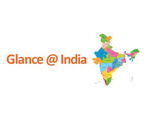Your Excellency Yasutoshi Nishimura, Deputy Chief Cabinet Secretary of Japan,
Distinguished members of diplomatic corps
Members of Diet,
Esteemed friends of India,
Members of Indian community in Japan,
1. Thank you all for congregating with us to celebrate the 70 th Republic Day of India. This is a day for all Indians to celebrate and honour our nation and our sovereignty. This is a day to remember with gratitude the enormous efforts and sacrifices of millions of freedom fighters whose blood and sweat gave us Independence and created our Republic.
2. India became a Republic on January 26, 1950. This was the second major milestone in our nation building process. Independence had come a little over two years earlier. But it was with the framing and adoption of the Constitution – and the birth of the Republic of India – that we truly achieved the value of equality among all citizens, irrespective of religion, region or community. Equality complemented the liberty that had come at Independence. And a third principle also defined both the cooperative efforts at creating our Republic as well as the India that we wished to be. This was the principle of fraternity.
3. A confident and forward-looking nation is built by confident, skilled and forward-looking young people. Over 60 per cent of our fellow citizens are below the age of 35. Excellencies, Ladies and Gentlemen, India’s aspiration is to further reform, upgrade and enlarge our education system – and to make it relevant to 21st century realities of the digital economy, robotics, automation genomics,. Future of India lies in the hands of its youth.
4. In an increasingly interconnected world, we feel that India’s nation building is contributing to a better world – a composite and cohesive world, a world at peace with itself and at peace with nature. This is the ideal of Vasudhaiva Kutumbakam – of the World being One Family. It is an ideal that may sound impractical in today’s times of tensions and of terrorism. But it is an ideal that has inspired India for thousands of years – and that ideal can be felt in the very essence of our constitutional values. The principles of compassion, of assisting those in need, of building capacities of our neighbours, or even of those further away, underpin our society. These are the very principles that we bring to the international community.
5. As a result of continuous reforms over the years, Indian economy has been climbing new heights. Recently, the World Bank’s ease of doing business index has witnessed india’s climb by 23 spots, clearly displaying its impact on the sharp increase in the flow of Foreign Direct Investment into India to 61 billion US dollars in the period between March 2017-April 2018, our Financial Year. It was 36 billion US dollars in the Financial Year of March 2013 to April 2014. All prominent economic analysts, including those from the Breton Woods institutions have predicted a sustained high rate of growth of India’s Gross Domestic Product. Japanese businesses too have benefited from the demographic dividend of India. In return, India has received their support in upgrading our industrial value chain and ecosystem. Japan’s role in clean energy, infrastructure, high speed railway, capacity building programs and introduction of advanced technologies is greatly valued in India.
6. Throughout history, Japan and India have enjoyed close and friendly civilizational links. We have our shared cultural legacies and bonds. Despite being geographically distant, our people to people relationship has been intensifying. Approximately 35000 Indians calling Japan their home is a testimony to this fact.
7. India and Japan has established special strategic and global partnership in a plethora of sectors, including common vision of an inclusive, open, stable and rule based Indo-Pacific region. The two countries have established annual summit, in which our respective Prime Ministers meet each other, bilaterally. The last such visit was by the Indian Prime Minister Modi. The warm reception accorded by Prime Minister Abe and the people of Japan reflects the close bonds between India and Japan at all levels.
8. Growing links between Sates in India and prefectures in Japan are a welcome indication of the emergence of new stake-holders in our partnership. Exchanges between our parliaments have further been strengthened with the establishment of India Japan Parliamentarians Friendship in the Indian Parliament. Last year, in order to celebrate the International Day of Yoga, the Japanese Diet organised, in its premises, yoga session, which saw enthusiastic participation of numerous Members of Diet.
9. I look forward to further promoting our close bilateral friendship and cooperation in the 150 th anniversary year of the birth of Mahatma Gandhi – a household name in many countries in the world as a harbinger of peace and non-violence.
10. At the end, please allow me to wish everyone present here good health and success in the last year of the Hesei era.
Thank you
JAI HIND!

























